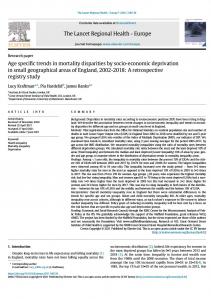
Inequality in the twenty first century
Showing 61 - 72 of 75 results

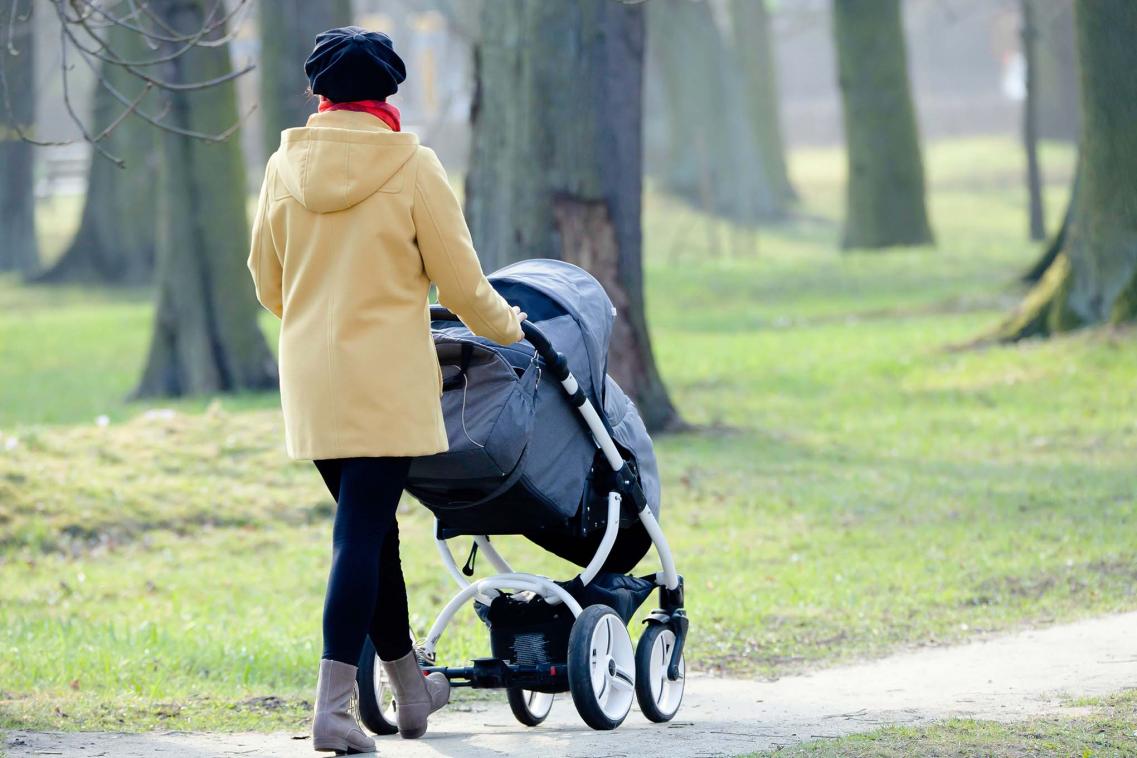


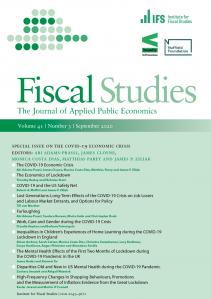
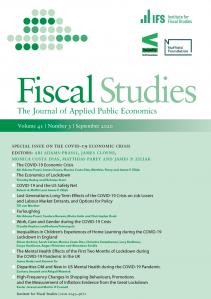


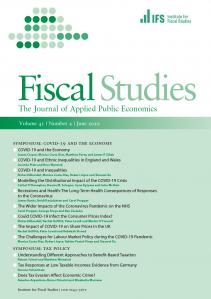

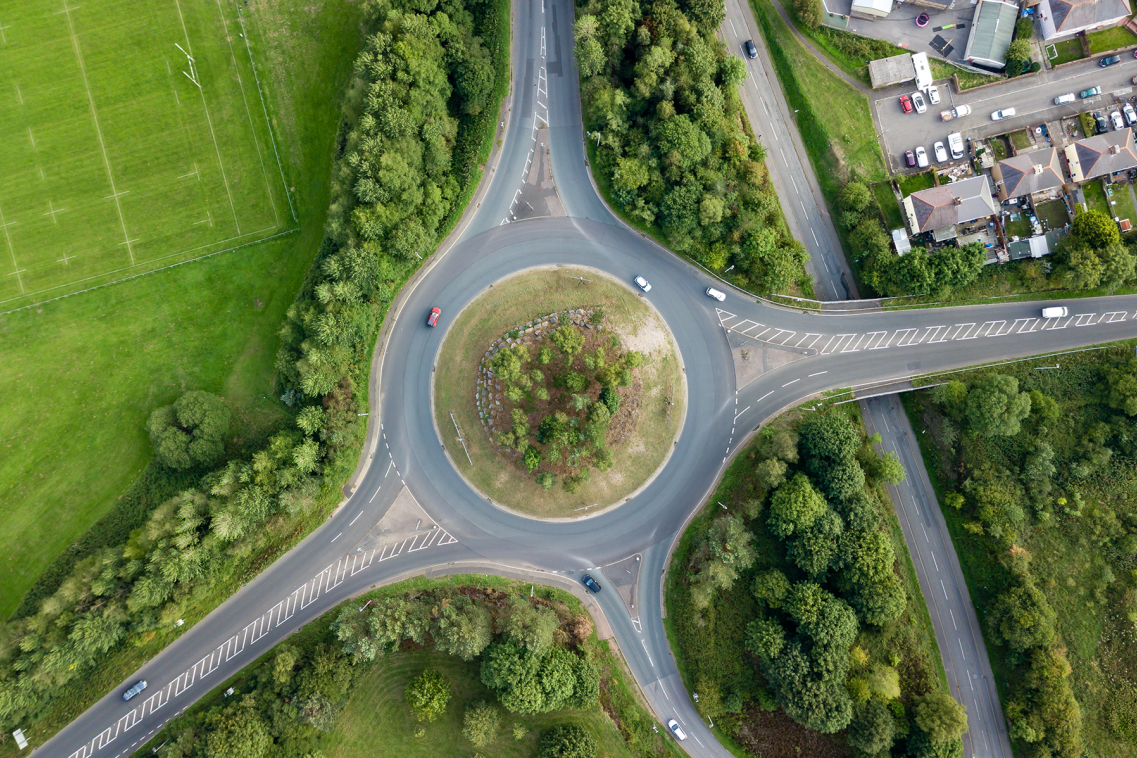
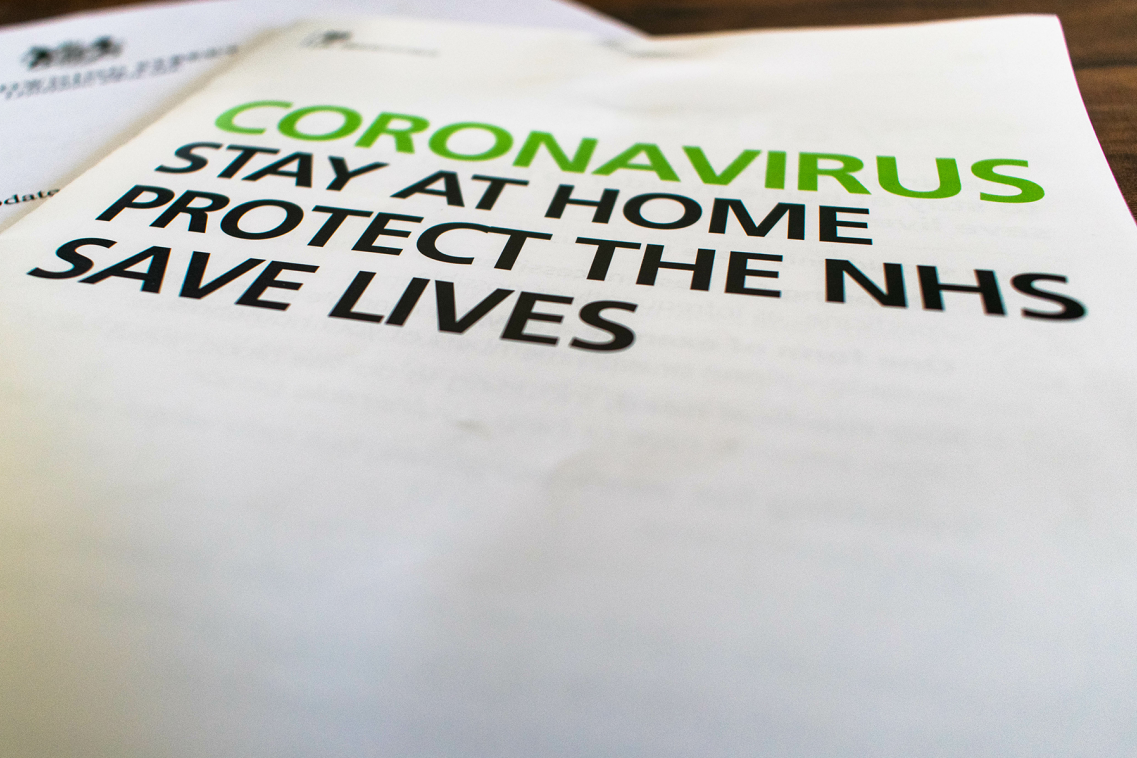

We describe the association between recent changes in socioeconomic inequality and trends in mortality disparities for different age and sex groups at small-area level in England.
4 June 2021

12 March 2021

12 March 2021

A year and a half ago we launched the IFS Deaton Review of Inequalities. When we did so, the chair of the Review, Nobel Laureate Sir Angus Deaton, raised the possibility that inequalities may prove a threat to our economic, social and political systems unless they are tackled effectively.
5 January 2021

30 November 2020

In this paper, we estimate the effects of the COVID‐19 pandemic on mental health in the UK. We use longitudinal micro data for the UK over the period 2009–20 to control for pre‐existing trends in mental health and construct individual‐specific counterfactual predictions for April 2020, against which the COVID‐19 mental health outcomes can be assessed.
30 November 2020

30 November 2020

Self-employment in the UK has risen dramatically. At this event, we discussed findings from a new report that explores the nature of the rise of self-employment, what it tells us about the state of our labour market, and how the Covid-19 crisis has affected the self-employed.
19 November 2020

This paper examines the pre-existing and new inequalities between ethnic groups in England and Wales exposed by the economic and public health crisis created by the COVID-19 pandemic. We draw on current mortality and case data, alongside pre-crisis labour force data, to investigate the relative vulnerability of different ethnic groups to adverse health and economic impacts.
3 June 2020

The IFS Deaton Review was launched to understand the causes of economic and social inequalities, and their effects on societies and on our political discourse. Such an analysis is particularly important for the economics and politics of trade policy: trade and globalisation can have important economic benefits, but these benefits are often widely, and thinly, spread across many consumers, while the costs of factory closures and changing employment structures can fall disproportionately on specific population groups.
11 September 2020

The COVID-19 crisis has brought to the fore increasing concerns about inequalities not only between different population groups – such as the gap between the rich and poor, young and old, and different ethnic groups – but also between people living in different places. Even prior to the crisis though, there was a sense that the UK is not only a highly geographically unequal country, but also an increasingly geographically unequal one.
3 August 2020

The COVID-19 crisis has affected every part of the country – and indeed many other countries. What sets this crisis apart is the many different ways that it is impacting families: while the virus itself is primarily a public health issue, the unprecedented responses it has necessitated mean that this is also very much an economic and a social crisis.
15 June 2020